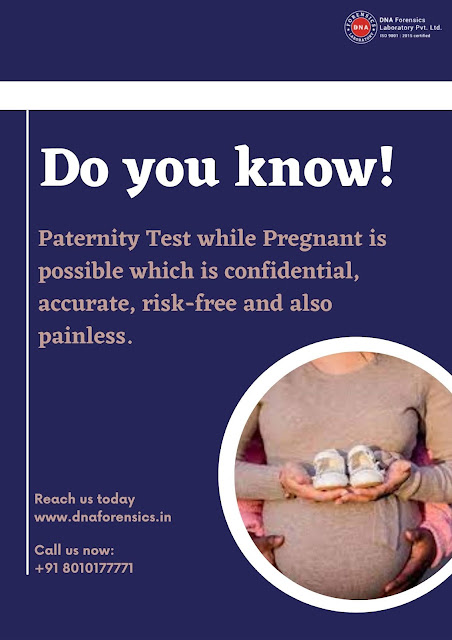Can a DNA test determine paternity during pregnancy?

A Non-Invasive Prenatal Paternity (NIPP) DNA Test helps determine the paternity of an unborn child during a woman’s pregnancy. The test examines the fetal DNA in the mother’s blood during the first trimester. It then compares this DNA profile with the buccal swab sample of the presumed father. The test does not involve the sex determination of the child. We understand the importance of a DNA Test while pregnant for future parents. It can form the foundation of your crucial life decisions. Hence, we use advanced technology and high DNA sequencing techniques for our testing. These tests are absolutely safe for the mother and the child. There is now no need to go for complicated procedures like amniocentesis. The Non-Invasive Prenatal Paternity Test usually involves three steps. Visiting the nearest collection center. Sample collection from the expecting mother and potential father. The home delivery of test results using standard or expedited delivery. The test results a...
